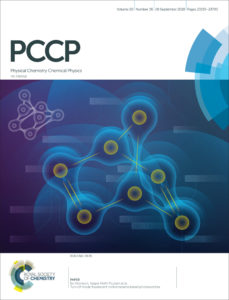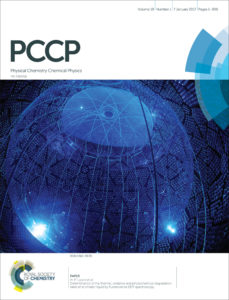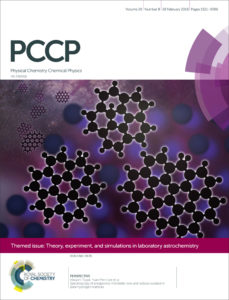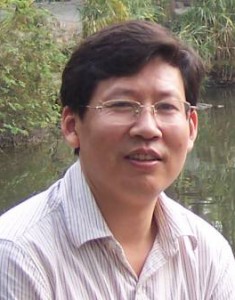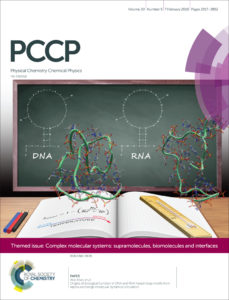This collection showcases all 2017 Physical Chemistry Chemical Physics (PCCP) articles highlighted as HOT by the handling editor. Congratulations to all the authors whose articles are featured.
Read it here now for free until the end of February 2018!
It includes:

Perspective
Solid surface vs. liquid surface: nanoarchitectonics, molecular machines, and DNA origami
Katsuhiko Ariga, Taizo Mori, Waka Nakanishi and Jonathan P. Hill
Phys. Chem. Chem. Phys., 2017, 19, 23658-23676. DOI: 10.1039/C7CP02280H
Perspective
Carbon nitrides: synthesis and characterization of a new class of functional materials
S. Miller, A. Belen Jorge, T. M. Suter, A. Sella, F. Corà and P. F. McMillan
Phys. Chem. Chem. Phys., 2017, 19, 15613-15638. DOI: 10.1039/C7CP02711G
Perspective
Curly arrows, electron flow, and reaction mechanisms from the perspective of the bonding evolution theory
Juan Andrés, Patricio González-Navarrete, Vicent Sixte Safont and Bernard Silvi
Phys. Chem. Chem. Phys., 2017, 19, 29031-29046. DOI: 10.1039/C7CP06108K
Communication
Mechanism and kinetics of the electrocatalytic reaction responsible for the high cost of hydrogen fuel cells
Tao Cheng, William A Goddard, Qi An, Hai Xiao, Boris Merinov and Sergey Morozov
Phys. Chem. Chem. Phys., 2017, 19, 2666-2673. DOI: 10.1039/C6CP08055C
Paper
Influence of orientation mismatch on charge transport across grain boundaries in tri-isopropylsilylethynyl (TIPS) pentacene thin films
Florian Steiner, Carl Poelking, Dorota Niedzialek, Denis Andrienko and Jenny Nelson
Phys. Chem. Chem. Phys., 2017, 19, 10854-10862. DOI: 10.1039/C6CP06436A
Paper
Influence of cations in lithium and magnesium polysulphide solutions: dependence of the solvent chemistry
Georg Bieker, Julia Wellmann, Martin Kolek, Kirsi Jalkanen, Martin Winter and Peter Bieker
Phys. Chem. Chem. Phys., 2017, 19, 11152-11162. DOI: 10.1039/C7CP01238A
Paper
Covalent-reaction-induced interfacial assembly to transform doxorubicin into nanophotomedicine with highly enhanced anticancer efficiency
Chenchen Qin, Jinbo Fei, Ganglong Cui, Xiangyang Liu, Weihai Fang, Xiaoke Yang, Xingcen Liu and Junbai Li
Phys. Chem. Chem. Phys., 2017, 19, 23733-23739. DOI: 10.1039/C7CP02543B
We hope you enjoy reading the articles.
Is your research HOT? Our editors are already handpicking the hottest 2018 content for our rolling 2018 PCCP HOT Articles collection. Submit your work for consideration now.












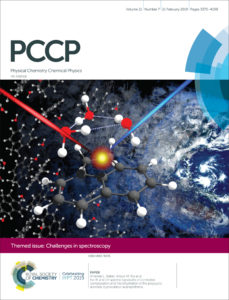

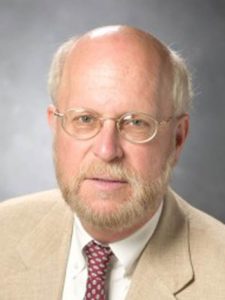 Paper
Paper 
